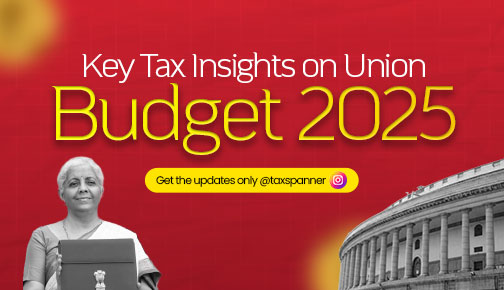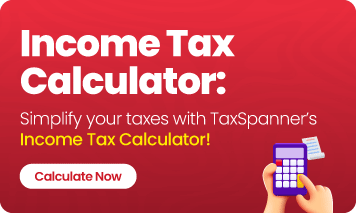Understanding Section 148: A Taxpayer's Guide to Reassessment Notices
In the intricate world of income tax, Section 148 of the Income Tax Act holds particular significance. This provision grants the Income Tax Department the authority to revisit and reassess a taxpayer’s previously filed returns if there's reason to believe that certain income has gone unassessed. Essentially, it's a mechanism for the tax authorities to review and rectify any overlooked discrepancies from an earlier assessment.
Under Section 147 of the Income Tax Act, 1961, the Assessing Officer is authorized to select your income tax return for reassessment based on specific criteria. To initiate this process, they issue a notice under Section 148, signalling that some income may have escaped assessment.
But what does this really mean for you as a taxpayer, and how does Section 148 affect your obligations? Let’s explore the ins and outs of this provision and why it matters in this blog.
What is Section 148?
Section 148 of the Income Tax Act 1961 allows the Assessing Officer to send notices to taxpayers whose income needs to be correctly assessed. This means that if the officer suspects that a taxpayer has not disclosed complete income or provided an inaccurate representation, they can initiate proceedings under this section. The Finance Act 2022 introduced Section 148A, which requires the assessing officer to conduct an inquiry and provide the taxpayer with an opportunity to explain their case before issuing a notice under Section 148.
The 2021 budget introduced Section 148A in the Income Tax Act. Suppose the officer has information that the taxpayer has undisclosed income for a specific assessment year. In that case, the officer must give the taxpayer a chance to explain before issuing a notice. The taxpayer has the right to explain his case to the officer. The officer must allow the taxpayer at least seven days but no more than 30 days to provide their explanation.
If the officer decides to issue a notice for reassessment, they must provide a copy of the order and a notice under Section 148 to the taxpayer. Notices cannot be issued if three years have passed since the end of the relevant assessment year, but if there is evidence of tax evasion of at least Rs 50 lakh, a notice can be issued beyond three years but within 10 years from the end of the relevant assessment year.
Before conducting inquiries, providing opportunities to the taxpayer, or making any orders, the income tax officer must obtain the approval of the authority who has been specified for this. The assessing officer must provide the taxpayer with all the material and information relied upon, along with the notice under Section 148A or the Show Cause Notice. Any notice issued after that date without following the procedure under Section 148A would be invalid and against the provisions of the Income Tax Act.
Eligibility to issue Section 148 Notice
- Section 151(1) of the Income Tax Act, 1961 states that no notice can be issued by an Assessing Officer after four years from the end of the relevant assessment year unless the Principal Chief Commissioner or Principal Commissioner is satisfied that it's a fit case for issuing such notice.
- In cases where the Assessing Officer is below the rank of a Joint Commissioner, no notice can be issued unless the Joint Commissioner is satisfied that it's a fit case for issuing such notice.
- The Commissioner, depending on the case, doesn't need to issue the notice himself.
Section 148 Notice Time Limit
- Standard time limit: 3 years from the end of the relevant assessment year.
- The specified time limit is 3 years but not 10 years, and the Assessing Officer has evidence of income exceeding Rs 50 lakhs.
- The Assessing Officer will issue a notice if the taxpayer has submitted their returns under Section 139 for the relevant assessment year.
- If the taxpayer did not file their returns even after receiving a notice under Section 142 or Section 148(1), the Assessing Officer may act.
- Complete and accurate information required for the assessment of that specific year must be provided by the taxpayer.
Replying to Notice under Section 148
Never take a notice under Section 148 lightly. If you receive one, follow these important steps:
Check the notice carefully
Review the notice to see the reasons recorded by the Assessing Officer for issuing it under Section 148. If the reasons are not included, you can request the Assessing Officer to provide a copy of the recorded reasons.
Respond promptly
You must respond within the specified time frame, usually within 30 days. Your response can be either by filing a return or by submitting a written reply to the Assessing Officer, complete with all necessary details and proofs.
Agree with the reasons? File quickly
If you're satisfied with the 'reasons to believe' recorded by the Assessing Officer, file your return as soon as possible. If you've already filed, send a copy to the Assessing Officer.
File with caution
When filing your income tax return in response to a notice under Section 148, make sure that you declare all your income and expenses precisely. Failing to report any income correctly could lead to unnecessary penalties.
Challenge if necessary
If you believe the notice or the reasons provided by the Assessing Officer for reopening the assessment under Section 147 are invalid, you can challenge the notice before the Assessing Officer or higher authorities.
Outcomes of your challenge
If you win your case, the Court will stop the assessment proceedings. However, if the decision is not in your favour, the Assessing Officer may proceed with the reassessment.
Consequences of failure to respond to Section 148
The Assessing Officer may use the available information to complete the assessment if you fail to reply to a notification issued under Section 148. They can also estimate and assess your revenue. However, if you disagree with their assessment, you can appeal with the Income Tax Appellate Tribunal or the Commissioner of Income Tax (Appeals).
Who Can Issue a Notice Under Section 148
According to Section 151(1) of the Income Tax Act, 1961, here’s how notices under Section 148 are issued:
For older cases
An Assessing Officer cannot issue a notice under Section 148 after 3 years from the end of the relevant assessment year unless the Principal Chief Commissioner, Principal Commissioner, Chief Commissioner, or Commissioner is satisfied with the reasons recorded by the AO that it’s a fit case for issuing such notice.
For other cases
If the Assessing Officer is below the rank of a Joint Commissioner, they cannot issue a notice under Section 148 unless the Joint Commissioner is satisfied with the reasons recorded by the AO that it’s a fit case for issuing such notice.
Authority satisfaction
For both scenarios mentioned above, it’s important to note that the Principal Chief Commissioner, Principal Commissioner, Chief Commissioner, or Joint Commissioner, depending on the case, must be satisfied with the reasons recorded by the AO about the fitness of the case for issuing a notice. However, they are not required to issue the notice themselves.
Duties and Rights of the Assessee After Receiving a Notice Under Section 148
Filing Returns
The assessee is required to file tax returns for any income considered as "Income Escaping" for the relevant assessment year.
Requesting Reasons
Once the returns are filed, the assessee has the right to request a copy of the notice, which explains the reasons behind the Assessing Officer's decision to issue the notice under Section 148.
Challenging the Notice
If the assessee finds the reasons unsatisfactory or baseless, they have the right to file an objection challenging the validity of the notice.
Valid Objections
When raising objections, the assessee must provide valid reasons for questioning the legality of the notice issued under Section 148.
Seeking Clarification
If the Assessing Officer dismisses the assessee's claims, the assessee has the right to request separate reasons for the dismissal.
Filing a Writ Petition
The assessee can file a writ petition with the appropriate High Court, challenging the legality and validity of the notice under Section 148, even before the assessment or re-assessment is concluded.
After Assessment
Even if the assessment is completed and the matter is under appeal, the assessee still has the right to file a writ petition with the relevant High Court, questioning the legality and validity of the notice under Section 148.
Providing Evidence
The assessee must document the following actions:
- Requesting a copy of the reasons recorded by the Assessing Officer for issuing the notice.
- Filing an objection to the reasons presented by the Assessing Officer.
- Requesting further clarification from the Assessing Officer.
- Challenging the legality of the notice's issuance.
Changes in Reopening Income Tax Assessments
- As part of the Union Budget 2021, the time limit for reopening income tax assessment cases has been reduced from 6 years to 3 years.
- In cases of significant tax evasion, where the concealed income exceeds Rs. 50 lakh, the assessment may be reopened for up to ten years.
- The extended ten-year reopening period applies only if the concealed income is above the Rs. 50 lakh threshold.
- The Assessing Officer is required to provide specific reasons if they reject the objections raised by the assessee during the reopening process.
Things to Consider Before Replying to Section 148 Notice
Here are the key considerations to keep in mind before replying to Section 148 Notice:
- Understand the Reasons: Start by reviewing the reasons the Assessing Officer (AO) has given for issuing the Section 148 notice. If these reasons aren’t included in the notice, you have the right to request a copy.
- File Returns Promptly: If the reasons are valid, promptly file your tax returns to avoid potential legal issues. If you’ve already filed under Section 148, make sure to send a copy of your returns to the AO.
- Be Thorough and Accurate: When filing your income tax returns, exercise caution and thoroughness. Any mistakes or omissions in reporting income or expenses could lead to legal penalties so make sure all information is reported accurately.
- Know the Provisions: Familiarize yourself with the provisions of Section 148 to avoid legal complications. Regularly assessing your income each assessment year is advisable to stay tax compliant and avoid any issues.
By keeping these factors in mind, you can effectively respond to a Section 148 notice and navigate the income tax assessment process smoothly.
In conclusion, Section 148 of the Income Tax Act, 1961, is a key tool for confirming that taxpayers' incomes are thoroughly and accurately assessed. Receiving a notice under this section is not something to be taken lightly. It’s crucial to respond and provide complete and precise details about your income and expenses. Ignoring the notice or missing the response deadline could result in an assessment based solely on the Assessing Officer's judgment, which might not be in your favour. By carefully addressing each step, you can avoid potential pitfalls and guarantee a smooth tax assessment process. Keeping the above factors in mind not only helps in managing the current notice but also sets a solid foundation for maintaining tax compliance and avoiding future issues.
Explore TaxSpanner's wide range of calculators for your tax planning and calculations!
View Tools & Calculators





